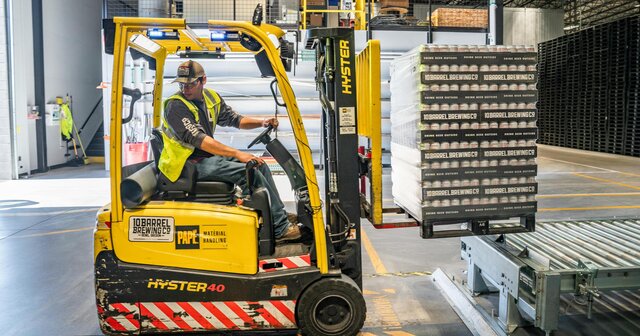
President Trump’s global tariffs have been justified by a simple story. The rest of the world is taking advantage of us. Americans buy tons of stuff from abroad, and this has decimated domestic industry. Foreign competitors are eating our lunch, and we can’t keep up.
Vice President Vance made the point in a provocative way: A million cheap, knockoff toasters aren’t worth the price of a single American job.
Notice that Main Street America is not overflowing with the people laid off from toaster factories. Rumors of the death of manufacturing are exaggerations. America has been adding manufacturing jobs since 2010. American manufacturers produced at record levels in 2024, adjusting for inflation, according to the Bureau of Economic Analysis.
In other words, it’s a myth that American producers have lost ground in the global economy. There are more people making more goods in America over the past 14 years. Take your deindustrialization worries back to the 2000s.
Part of American gains is due to foreign trade. Some American manufacturers keep their edge through competitive supply chains that can span the world. American producers sell more to people around the world. American brands, services and products are found in the far corners of the earth.
This ought to quell worries that America is losing manufacturing to foreign competition, but it doesn’t. While manufacturing may be up, surely it’s changed a lot, and some workers have not been able to keep up.
People should also know that the competition for labor in America is fierce. The average worker finds a new job every 4.6 years. The average worker in a plant doesn’t have much longer tenure — 5.9 years. When one in 17 workers finds a new gig every year, people clearly aren’t specialty machines that are only valuable in one workplace. They find better opportunities.
There are more opportunities in America than ever before. There are 1.3 million more manufacturing jobs than there were in 2010, but there are 26.3 million more jobs outside of manufacturing than there were in 2010.
There are more pharmacists than machinists in America. Pharmacists earn more than twice what machinists do, on average.
There are twice as many truck drivers as metalworkers. Driving pays more.
It’s just not the case that the rich are getting richer and the poor are getting poorer. More and more households are earning more.
A person can see a closed factory and worry that the people who worked there lack good options to work elsewhere. The opportunities that workers have, however, are often hidden from others. But its signs are visible. Literally. Walk down a neighborhood and notice the homes for sale. Many a home that is up for sale is on the market because its owner found a better job outside the community. And when a home sells, it’s often to a person who found a better job inside the community.
There’s a reason why concern over foreign trade resonates with so many people. But it’s not because scholars have carefully concluded that America is doomed to decline due to cheap foreign goods. Rather, the concern stems from a basic fear: There are nefarious people out there looking to exploit us, and we should be careful.
The idea has some truth to it. The world has a lot of people who are hostile to America and Americans. But officials and commentators go too far when they treat everyone as an adversary or treat trade as injurious.
The Americans buying goods from abroad tend to feel like they got a good deal, not manipulated by a shyster. The trade deficit stems from the millions of decisions people make to best serve their own interests. Mutually beneficial exchange leaves both parties better off.
Still, people are right to be worried about the unintended consequences of their exchanges. Surely the abandoned factories of the Rust Belt are evidence that global trade has left some Americans in the lurch.
But people ought to recall that most of America isn’t filled with the husks of manufacturing plants. Utah and Idaho are boom states while Michigan and New York stagnate. And Michigan and New York can turn it around, too, if they embrace better policy and better management.
Even if politicians in stagnating states choose to pick some residents over others and to hurt their statewide prosperity with excessive burdens, their residents are not bound by those poor decisions. People find better jobs elsewhere and take their families with them. American workers are in demand and move where they are wanted. Concerns about decline in America ought to be attributed more to the failures of state politicians than threats from abroad.
It’s easy to ignore the positive trends in the American economy. People are carefully attuned to threats and warnings. That America is falling behind due to foreign competition is an old tune, and its siren song is seductive. But people should believe their own eyes and their own experiences and know that America remains the land of opportunity.
Permission to reprint this blog post in whole or in part is hereby granted, provided that the author (or authors) and the Mackinac Center for Public Policy are properly cited.
Get insightful commentary and the most reliable research on Michigan issues sent straight to your inbox.

The Mackinac Center for Public Policy is a nonprofit research and educational institute that advances the principles of free markets and limited government. Through our research and education programs, we challenge government overreach and advocate for a free-market approach to public policy that frees people to realize their potential and dreams.
Please consider contributing to our work to advance a freer and more prosperous state.

Donate | About | Blog | Pressroom | Publications | Careers | Site Map | Email Signup | Contact